For merchants who are just starting their online selling journey, a budget-friendly eCommerce platform would certainly be on the top of their mind. Thankfully, eCommerce giants such as Shopify and BigCommerce now offer cost-efficient subscription plans to match this demand. So what are the differences between the Shopify Basic vs BigCommerce standard plans?
In a previous article, we’ve analyzed the full features and benefits of Shopify vs BigCommerce. This time, however, let’s take a closer look at the comparison between their most popular pricing plans – Shopify Basic vs BigCommerce Standard.
See which of these 2 plans is more suitable for you using our key points as follows:
- Key differences in Shopify Basic vs BigCommerce Standard features
- Shopify Basic vs BigCommerce Standard: Which platform wins?
- A final overview of Shopify and BigCommerce pricing for your better references
Read on and find out!
Shopify Basic vs BigCommerce Standard: Key Differences
Overall, these are a few notable differences between Shopify Basic vs BigCommerce Standard.
[wptb id=49135]
For a more detailed comparison, let’s check out how they rival each other below:
#1 Ease of use
For every online seller, it’s essential to have a platform that can help them set up and manage their store in the most efficient manner. Thus, let’s take a look at how easy it is to sell between Shopify Basic vs BigCommerce Standard.
Shopify Basic ease of use
You can follow our clear setup tutorial and Shopify’s guidelines to easily and quickly build a functional store. Creating a new Shopify store is simple, and so is managing that same store.
Moreover, Shopify also has a clear interface with visual cues and shortcuts for you to add products, customize themes and view sales reports.
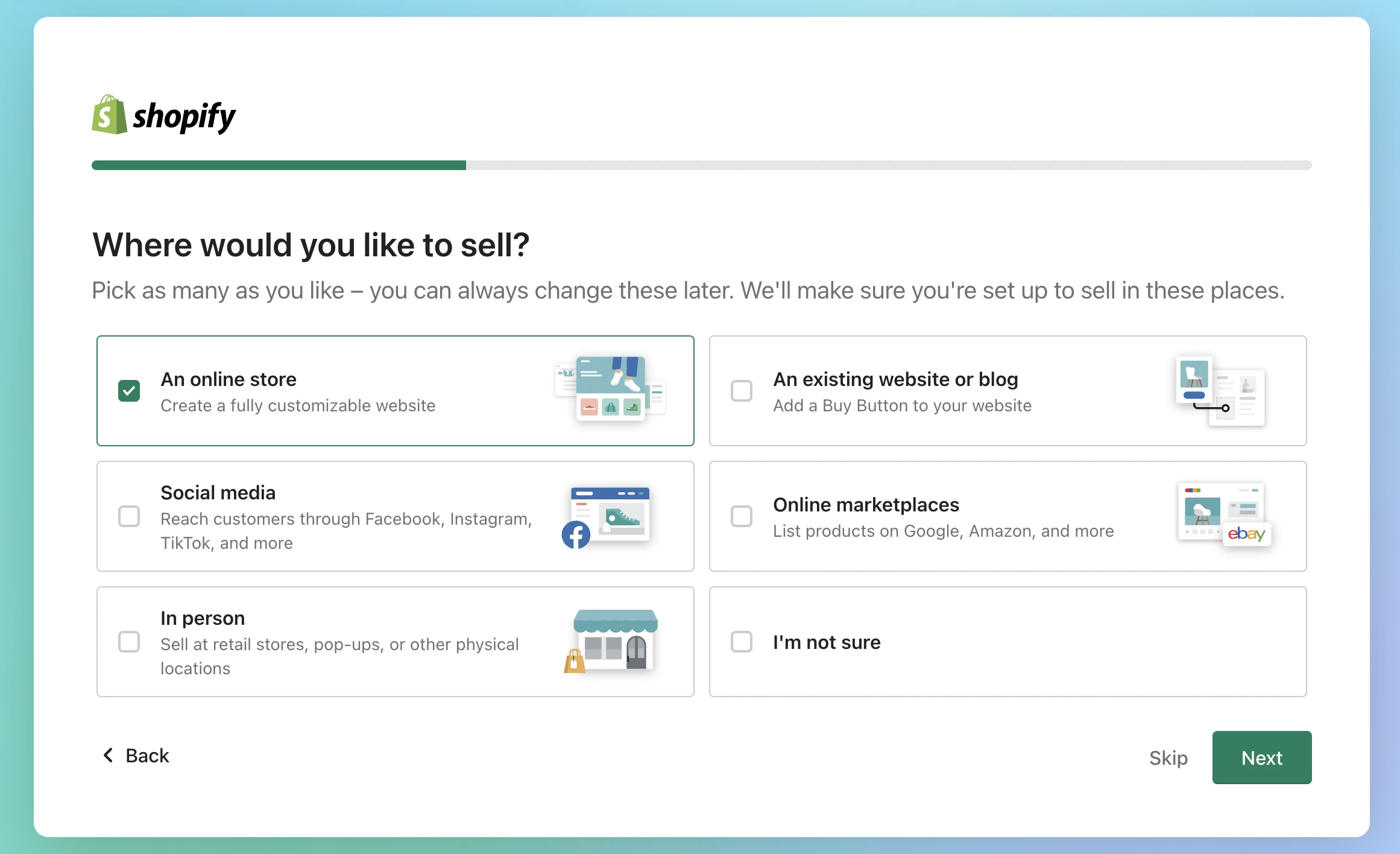
Shopify sellers can control everything that is happening on their eCommerce website with its user-friendly dashboard. The platform adopts a drag-and-drop design function, meaning you can simply add, remove or move sections by yourself with just a few clicks.
✧ Why don’t you create your own Shopify store and try out its features right today?
BigCommerce Standard ease of use
BigCommerce Standard is the plan designed for new store owners with little to no technical experience. All you need to do is create an account and edit basic profile information, you can get access to many eCommerce functions that this platform has to offer.
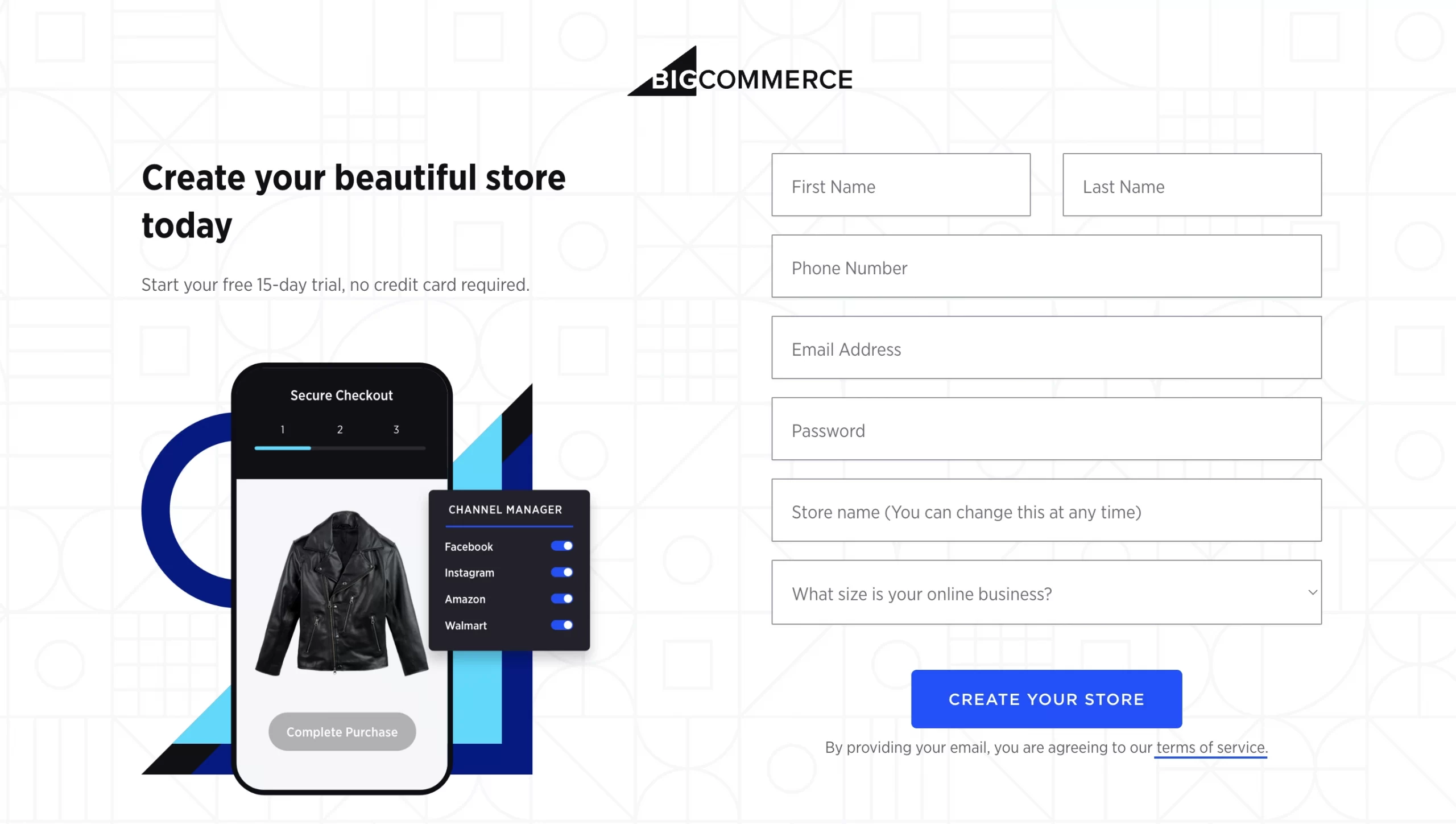
Take a look: A to Z BigCommerce tutorial for beginners
However, it’s worth noting that it might take some time for you to understand how the platform works. That said, you can empower your store with BigCommerce’s out-of-the-box functions to grow your business.
Final verdict
Both Shopify Basic and BigCommerce Standard are beginner-friendly plans in terms of creating your new online store. But overall, Shopify scores higher in terms of ease of use thanks to its quick onboarding process and user-friendly web editor. You can access every option you need from the side menu, and there will be a wizard instruction to help you set up your store step by step.
#2 Themes and design
Shopify Basic themes and design
With Shopify Basic, you’ll get access to 110+ themes (including 11 free ones) on the Shopify theme store. Shopify’s paid theme prices will range from $200-350 and cover plenty of industries, including electrical gadgets, arts and crafts, etc.
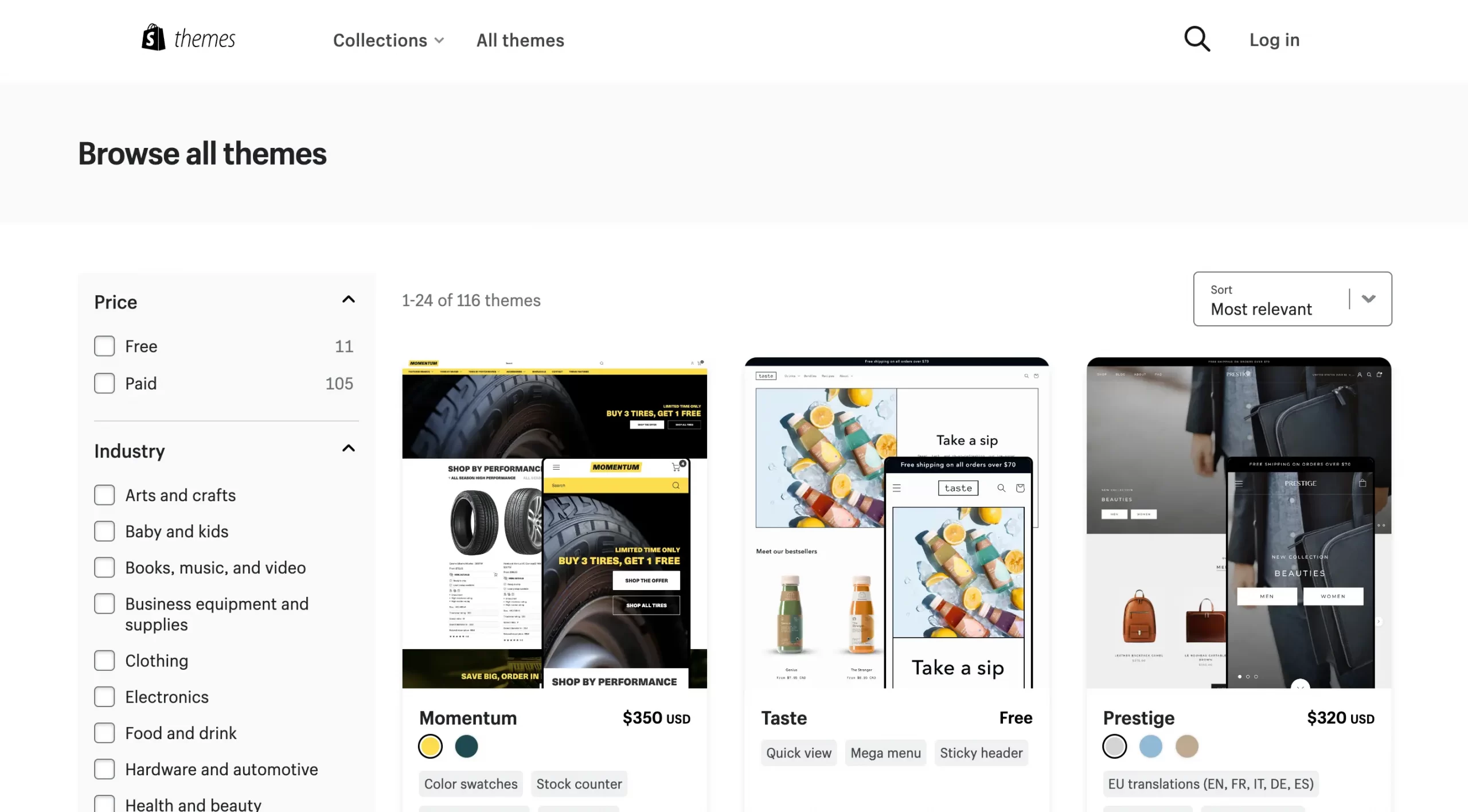
All of Shopify’s themes are elegant, attractive, and mobile responsive. In addition, you can easily customize them using Shopify’s custom design panel or even HTML/CSS codes.
✧ Don’t miss out on our list of the best Shopify themes, as well as our review of the latest free Shopify themes.
However, in terms of customizing flexibility, Shopify might fell behind due to its hosted-source nature. The platform provides you with straightforward drag-and-drop customization tools, but these only allow you to edit limited website sections.
If you’re more tech-savvy, you can access the theme’s backend and further customize it using Shopify Liquid.
Customized Shopify store design is essential in strengthening your brand image! See how you can improve your website display with our articles below:
BigCommerce themes and design
On the other hand, BigCommerce also offers 100+ responsive themes with 15 free themes for store owners on a budget. Paid BigCommerce themes are priced from $150 to $399.
In terms of design, BigCommerce themes are praised for their professional look. Similar to Shopify, you can tweak the HTML and CSS codes using BigCommerce stencil themes. However, you will have more in-depth customization capability.
Thus, your storefront will adopt a more unique look and can improve your customer’s experience.
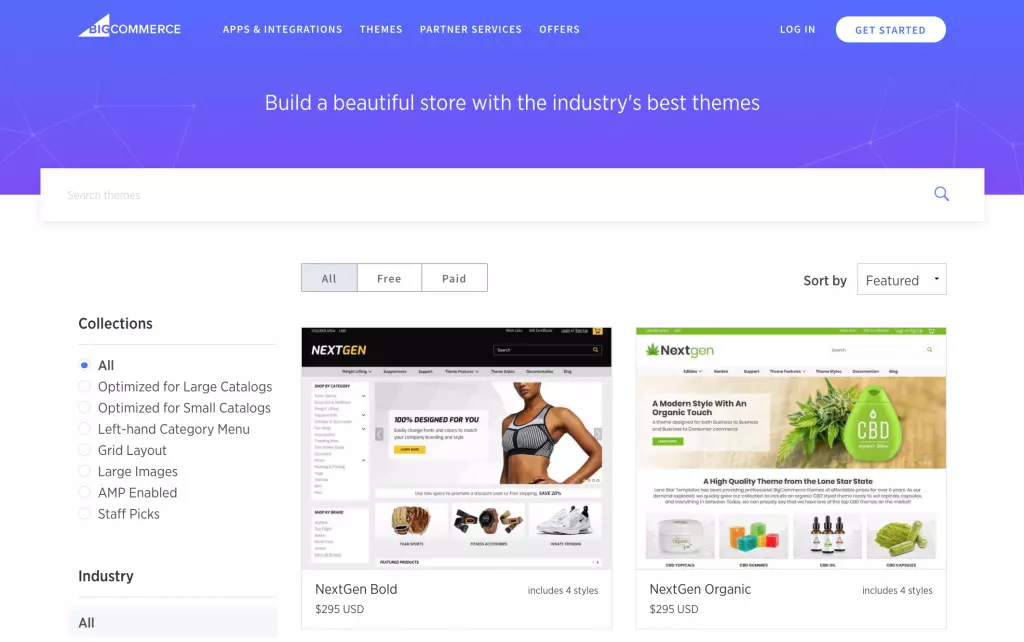
✧ Learn more about BigCommerce themes with our detailed articles:
As for customization, BigCommerce prides itself on its powerful open APIs. This feature not only provides users with detailed design alteration but also with the ability to access the underlying code and add unique store functions.
Final verdict
Comparing this aspect of Shopify Basic vs BigCommerce Standard, both eCommerce platforms offer users a great variety of themes. BigCommerce has a better advantage in its cheaper theme pricing, more refined designs, and in-depth customization. Meanwhile, Shopify’s themes are well-optimized on both the experience and the loading speed.
#3 Selling features
Shopify Basic selling features
Shopify Basic comes with many profitable selling features to help you drive maximum sales, including:
- Unlimited products
- 2 staff accounts and 4 inventory locations
- Basic reporting to help you monitor and analyze your store’s performance
- Real-time shipping rates with big discounts from the major carriers
- Shopify POS Lite to easily integrate online and offline sales
- Shopify Marketplace for selling in multiple currencies and languages
BigCommerce Standard selling features
BigCommerce Standard is a feature-rich and highly scalable plan with multiple built-in functions such as:
- Unlimited number of products and unlimited file storage
- Unlimited staff accounts
- Multi-currency selling with automatic currency conversion available
- Multiple sales channels
However, BigCommerce Standard will limit your sales volume to $50,000 annually. If you exceed this limit, you will be automatically transferred to the BigCommerce Plus plan.
Final verdict
Even though BigCommerce Standard allows more flexibility in selling than Shopify Basic, you will be limited in sales volume. Therefore, BigCommerce Standard is only suitable for smaller businesses making less than $50,000 per year.
Shopify Basic doesn’t have a threshold for your annual profit. Thus, you can continue to use this plan regardless of how much you make in sales.
#4 Apps and integrations
There are application stores available for Shopify Basic and BigCommerce Standard to add more functions to your store.
Shopify Basic apps
Shopify Basic comes with an app store of 4000+ apps, making it the biggest app store on the market. While this website builder has already included many built-in functionalities to meet basic needs, the app store will help you take your eCommerce site to the next level.
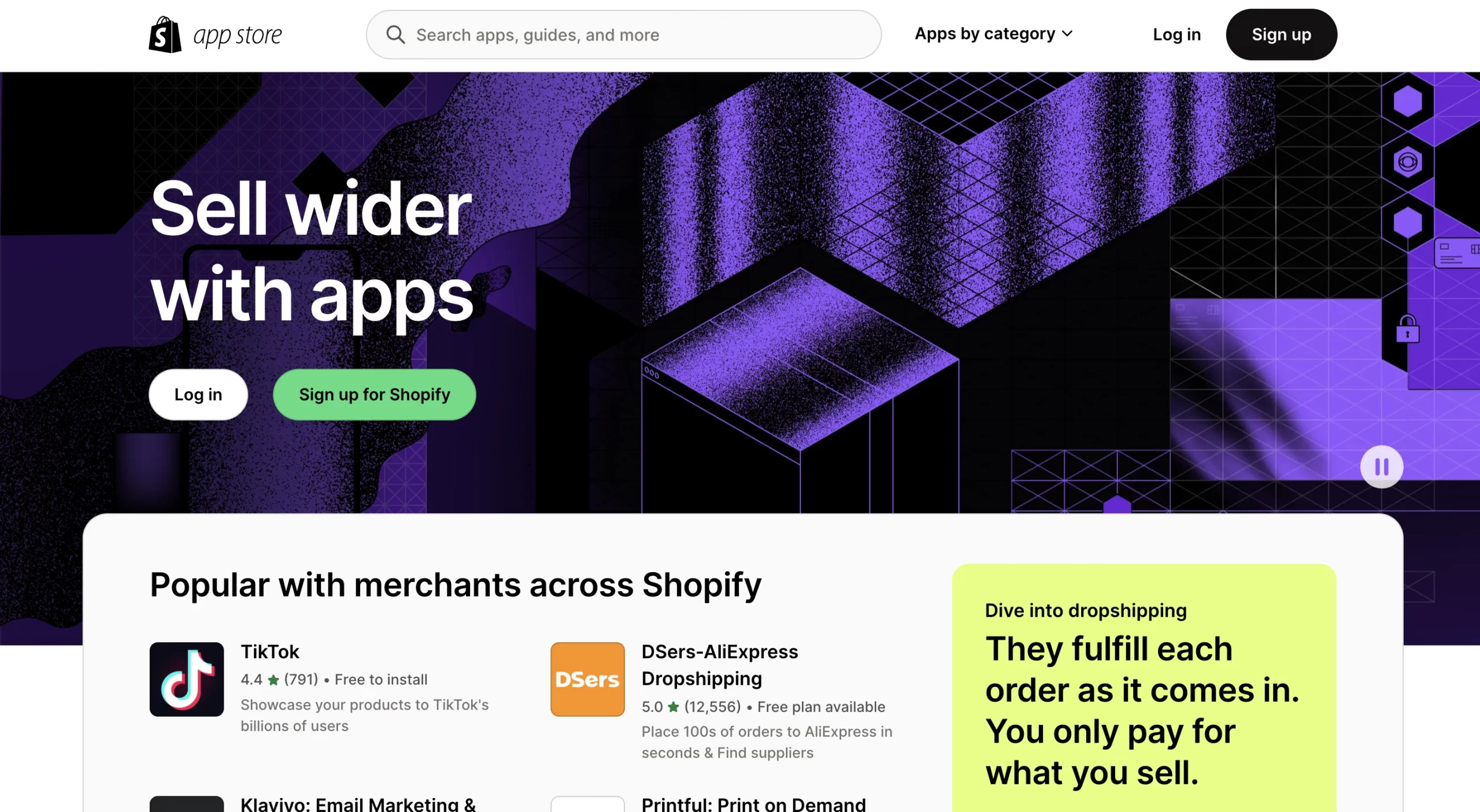
One outstanding feature that Shopify Basic has is custom app development. This means you can create completely new apps and tailor them to provide your store with unique functionalities.
✧ Read on to learn more about Shopify apps with 15+ best Shopify apps for a brand new website
BigCommerce Standard apps
Using BigCommerce, you’ll benefit from 1000+ apps from different categories to grow your store. We have also compiled a list of top BigCommerce apps to help users in choosing the most suitable apps for their store.
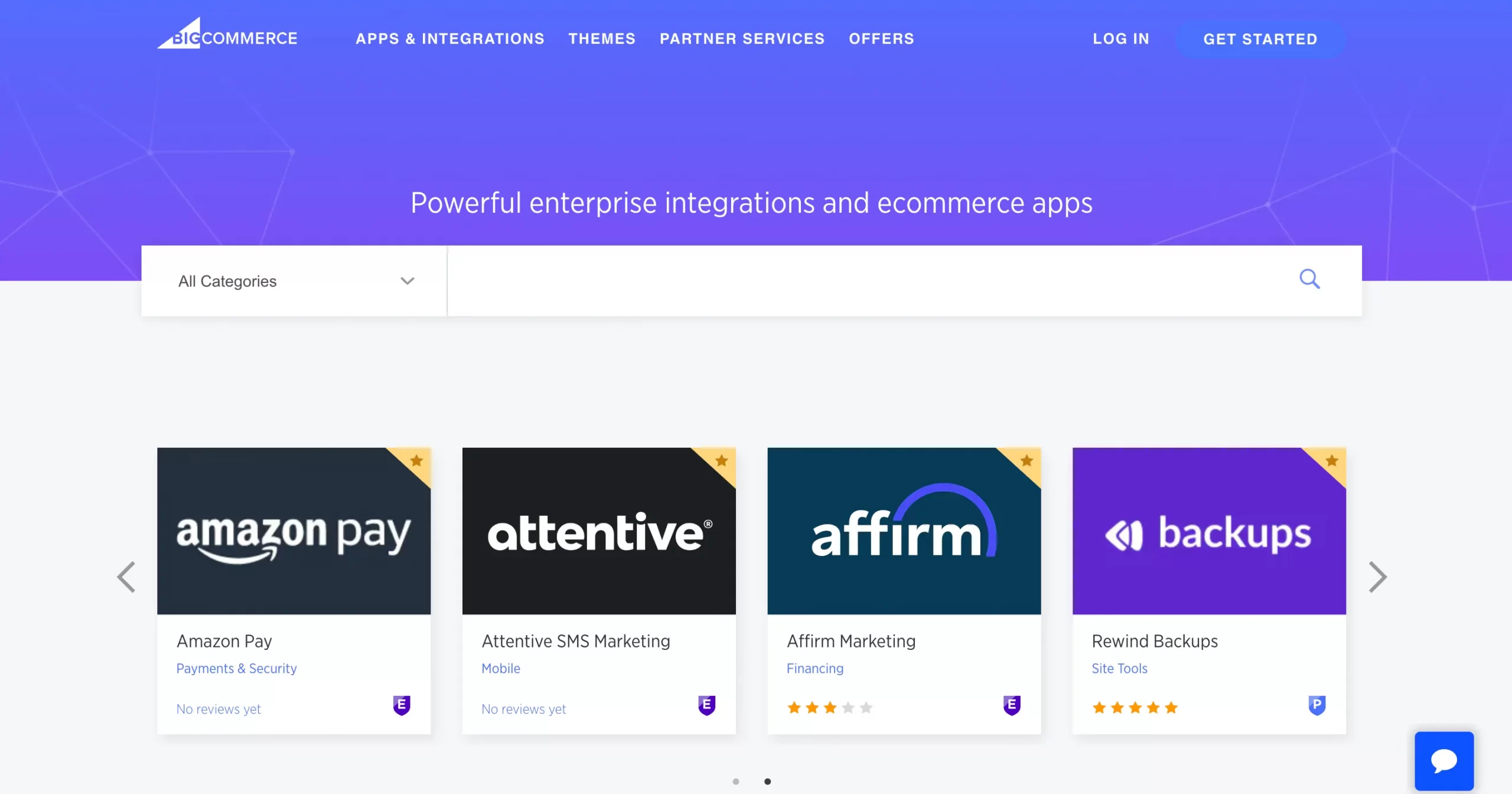
Many BigCommerce apps are free, while paid apps will cost you around $20 to $29 per each. In addition, some applications allow for a 15-day free trial before you decide to purchase.
When it comes to apps, it’s clear that BigCommerce marketplace contains fewer apps compared to Shopify. But in all honesty, BigCommerce provides more built-in features than Shopify. Therefore, you only need to add fewer apps to make the best out of your website.
Final verdict: In this comparison of Shopify Basic vs BigCommerce Standard, both platforms have various robust apps for you to choose from. However, Shopify marketplace clearly surpasses BigCommerce marketplace regarding the number and diversity of apps.
#5 Marketing features
Shopify Basic marketing
Shopify Basic will provide users with many built-in marketing tools to convert visitors and build strong customer relationships.
In terms of SEO, Shopify supports on-page optimization with a custom title tag and meta description editing. 301-redirect can also be created easily and will automatically prompt if a page or product URL on your page changes.
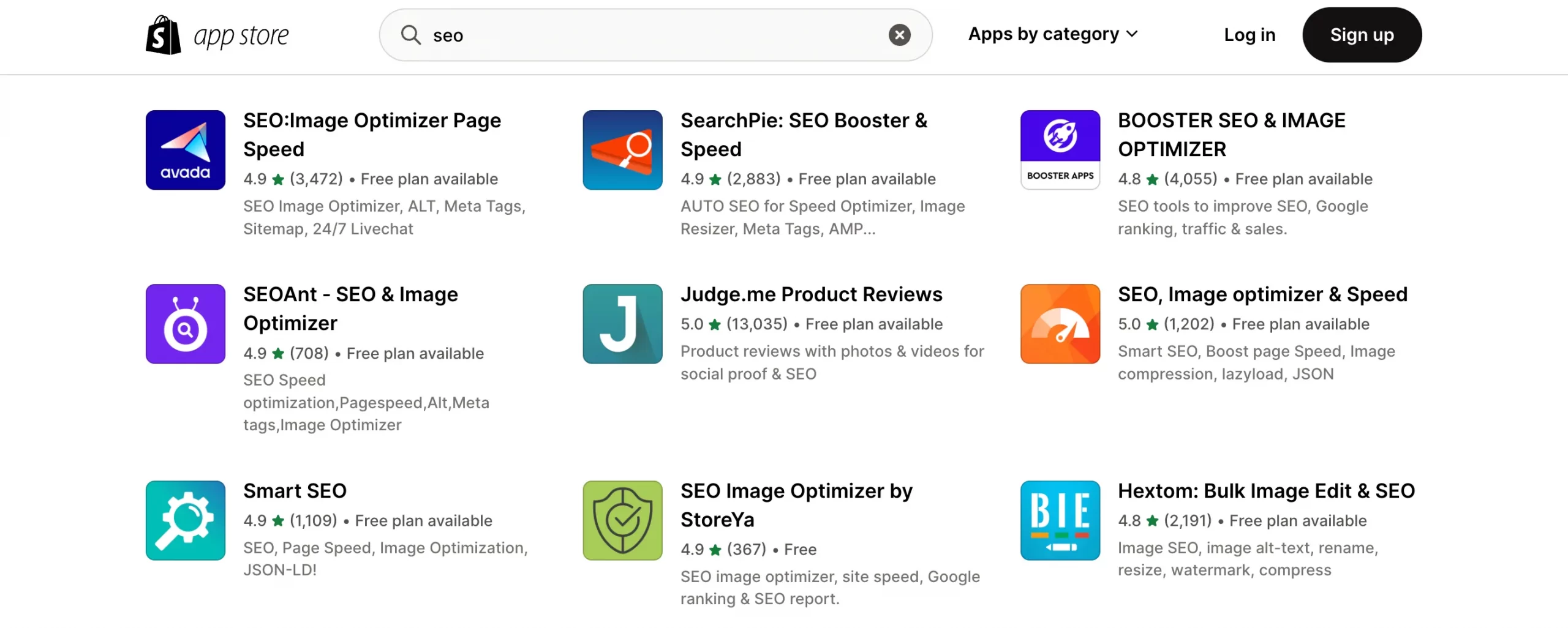
At the same time, Shopify provides ready-made email templates for more efficient email marketing campaigns. Sellers also have the ability to give customers gift cards and discount codes, as well as send them abandoned cart recovery emails.
When you use Shopify, you can manage and analyze all marketing activities within one dashboard.
BigCommerce Standard marketing
For email marketing, BigCommerce also allows you to sync store data with leading email platforms such as MailChimp, Klaviyo, and more.
One marketing feature that BigCommerce Standard wins over Shopify Basic is the built-in SEO capability. This means all eCommerce websites created with BigCommerce are powered with industry-standard SEO. Merchants will have full control over URLs, title tags, header tags, and metadata.
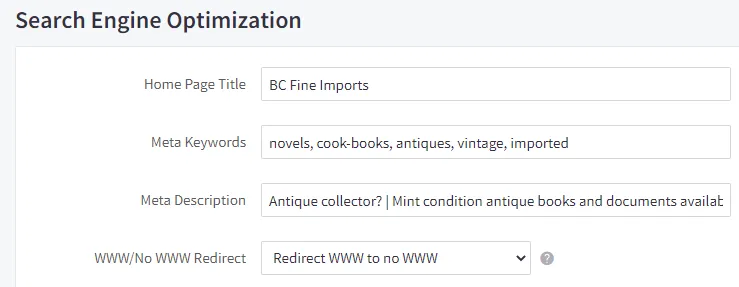
✧ You may want to read: Ultimate BigCommerce SEO guide
However, one crucial downside in marketing for BigCommerce Standard is that this plan doesn’t support abandoned cart recovery. This function is only available when you opt for BigCommerce Plus and higher pricing plans.
Final verdict
It’s clear that BigCommerce Standard takes the win over Shopify Basic regarding SEO, as this pricing plan allows for more utilized and extensive SEO aspects. Nevertheless, sellers may need to take notice that BigCommerce Standard doesn’t allow for abandoned cart recovery, while Shopify Basic does.
#6 Payment
Shopify Basic payment
With Shopify Basic, sellers can choose from hundreds of popular payment gateways to support their customers in making a purchase. At the same time, Shopify Payment – an in-house payment provider – is also available.
This payment gateway comes with a fraud analysis to detect any suspicious activities. Therefore, Shopify Payment can ensure a quick, smooth, and secure transaction between buyers and sellers.
✧ Please take a look at: Shopify Payment review.
However, selling on Shopify comes with a transaction fee. Using the Shopify Basic plan, you will need to pay a 2.9% fee + 30 cents per transaction if you use Shopify Payments to process card payments. If you don’t use Shopify Payments, there will be an extra 2% transaction fee on top of your alternative processor’s fees.
BigCommerce Standard payment
Unlike Shopify, BigCommerce doesn’t come with a built-in payment processor. Instead, store owners can integrate their store with various payment solutions within the BigCommerce app store.
BigCommerce now offers 65+ payment gateway integrations in over 100+ countries with 250+ local payment methods. The best part? You won’t have to pay any transaction fees, no matter which payment gateway you decide to integrate with!
Final verdict
In the payment battle between Shopify Basic vs BigCommerce Standard, Shopify provides its users with a wider variety of payment gateways, as well as its own payment processor. However, there will be a fee applied on all Shopify transactions, which can be costly to new sellers with lower sales volume. BigCommerce doesn’t charge any transaction fees.
#7 Support
Finally, let’s take a look at how Shopify Basic vs BigCommerce Standard compare in the customer support aspect. This will be extremely important for store owners who don’t have much online selling experience and might require regular assistance with their new store.
Shopify Basic support
Shopify is renowned for offering dedicated help and support. They have a professional team who is available 24/7 for phone, email, and live chat and can help customers resolve web-related problems in no time. What’s more, Shopify users can also find support in community forums, Help Center, API documentation, and numerous video tutorials.
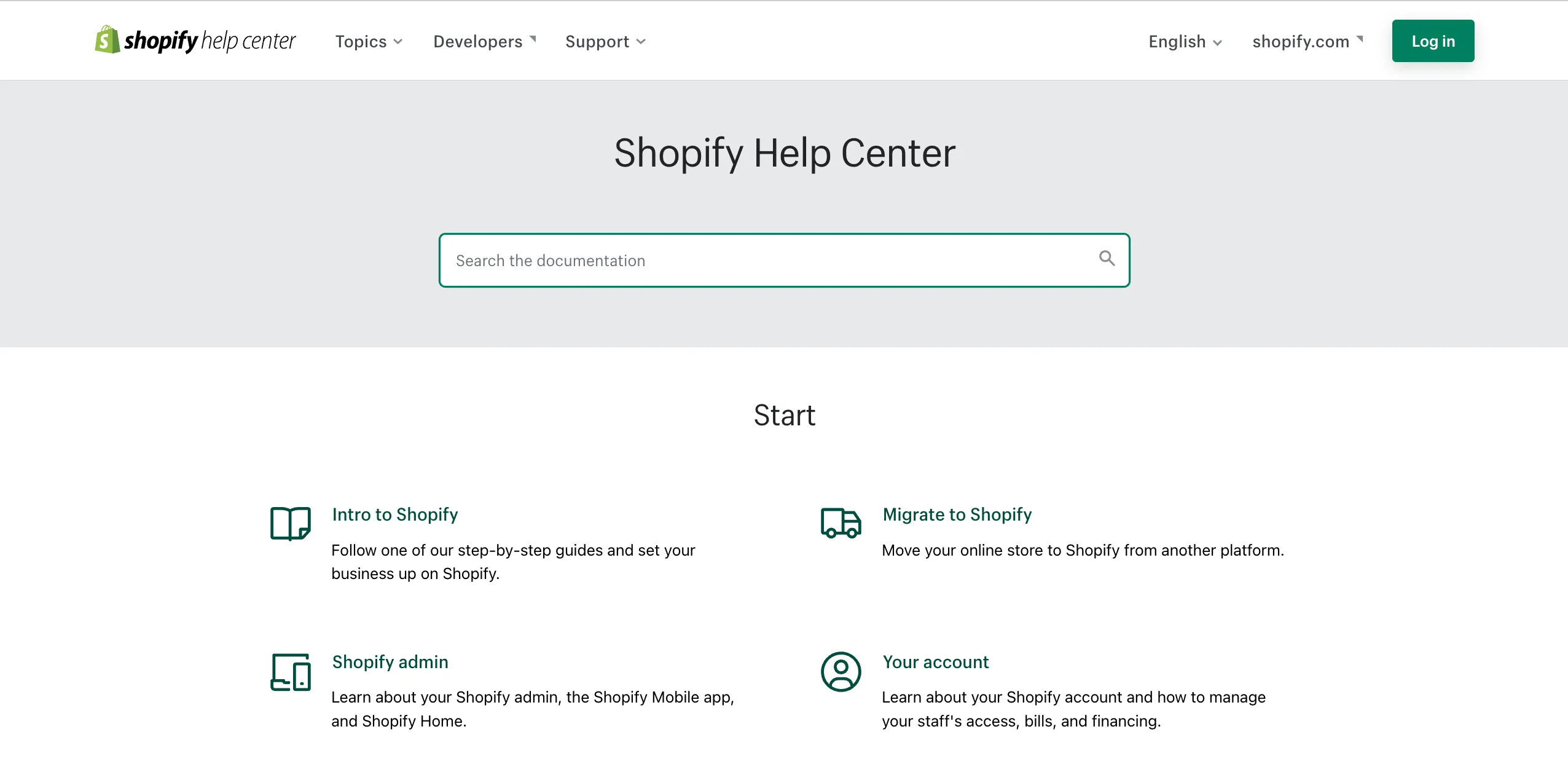
Still, need further assistance? You can always hire certified Shopify experts to ensure maximum problem resolution and flawless business operation.
BigCommerce Standard support
When you sign up for a BigCommerce free trial, you will receive an appointment for a 10-minute onboarding call. This allows the company to understand more about your business and your goals, thus being able to give tailored advice for your website.
By default, BigCommerce Standard also provides 24/7 phone, live chat, and email support. In addition, you can make use of video tutorials – and even better, comprehensive guides from the BigCommerce Support Center.
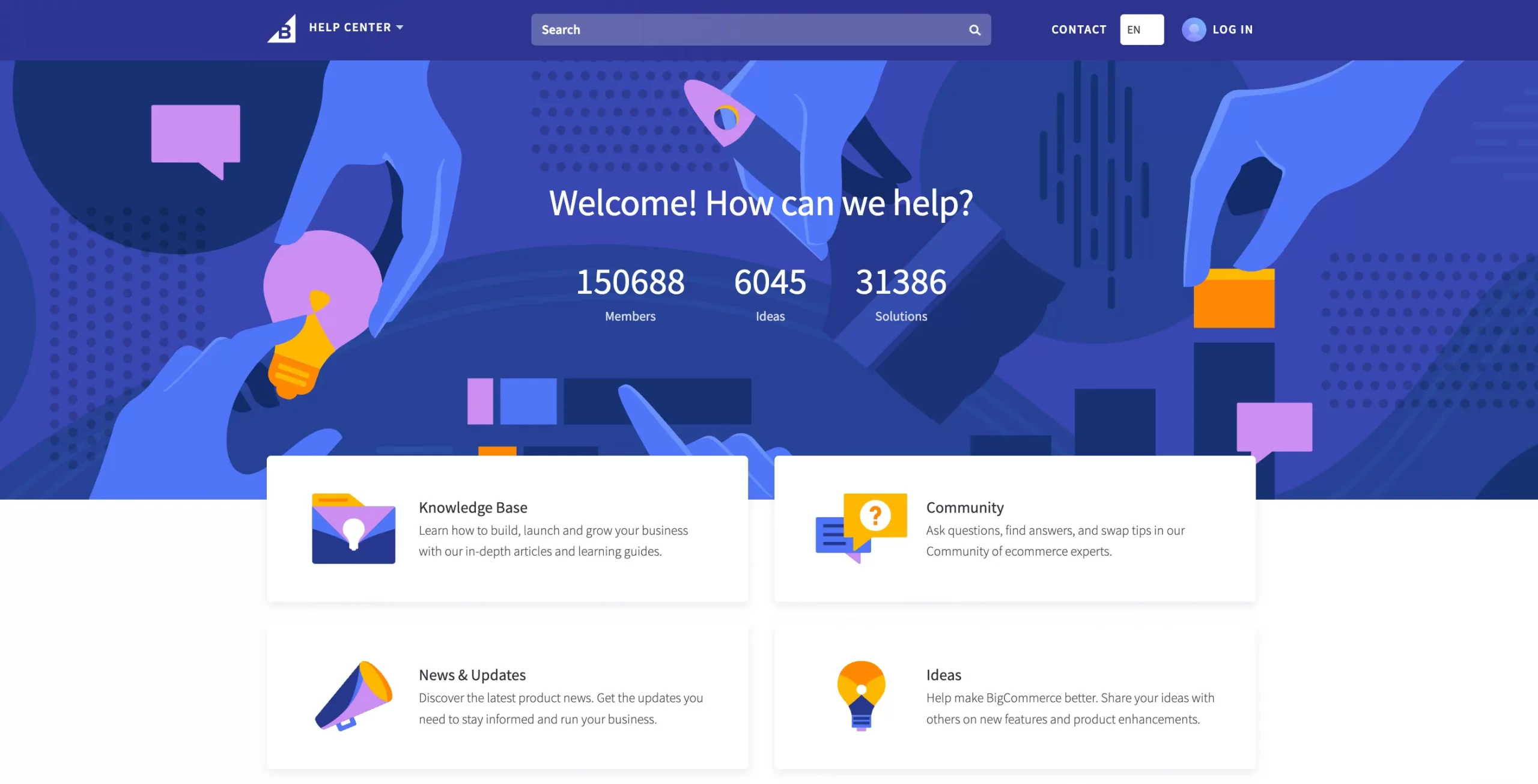
Final verdict
When comparing the support quality of Shopify Basic vs BigCommerce Standard, both platforms have prominent customer service processes. While BigCommerce’s unique selling point is its thorough onboarding call, Shopify has a more active user community and better in-app support.
Which Is Better – Shopify Basic vs BigCommerce Standard?
So when should you use Shopify Basic, and when should you use BigCommerce Standard?
- Shopify Basic is suitable for online selling beginners who want to set up and manage their websites as easily as possible. You can freely grow and scale your business without limits using Shopify’s essential eCommerce functions.
- BigCommerce Standard is the better choice for small store owners with less than $50,000 yearly revenue and wants to cut down on added costs such as transaction fees. The platform will also be a great choice for store owners who wish to rely more on built-in functions and not third-party integrations.
Overview of Shopify vs BigCommerce Pricing
Need more information about other Shopify and BigCommerce pricing plans? Let’s take a look!
#1. Shopify pricing
What is Shopify?
Founded in 2006, Shopify is a SaaS (software-as-a-service) eCommerce solution that can help brand owners create their online stores quickly and easily. As a hosted cart, this platform lets eCommerce sellers enjoy a hassle-free setup process without much technical knowledge. Shopify now supports more than 4 million users in 175 countries around the world.

The platform also takes pride in its powerful selling functionalities and business scalability. When building your eCommerce website with Shopify, you can take advantage of its diverse app store, multiple payment gateways, and dedicated customer support.
Shopify pricing plans
Shopify currently offers a great online selling starter pack, where you can enjoy 3 days of free trial and 3 months of selling at just $1 per month. After this period, sellers are required to choose a monthly subscription option from their 3 main pricing plans: Basic Shopify, Shopify, and Advanced Shopify.
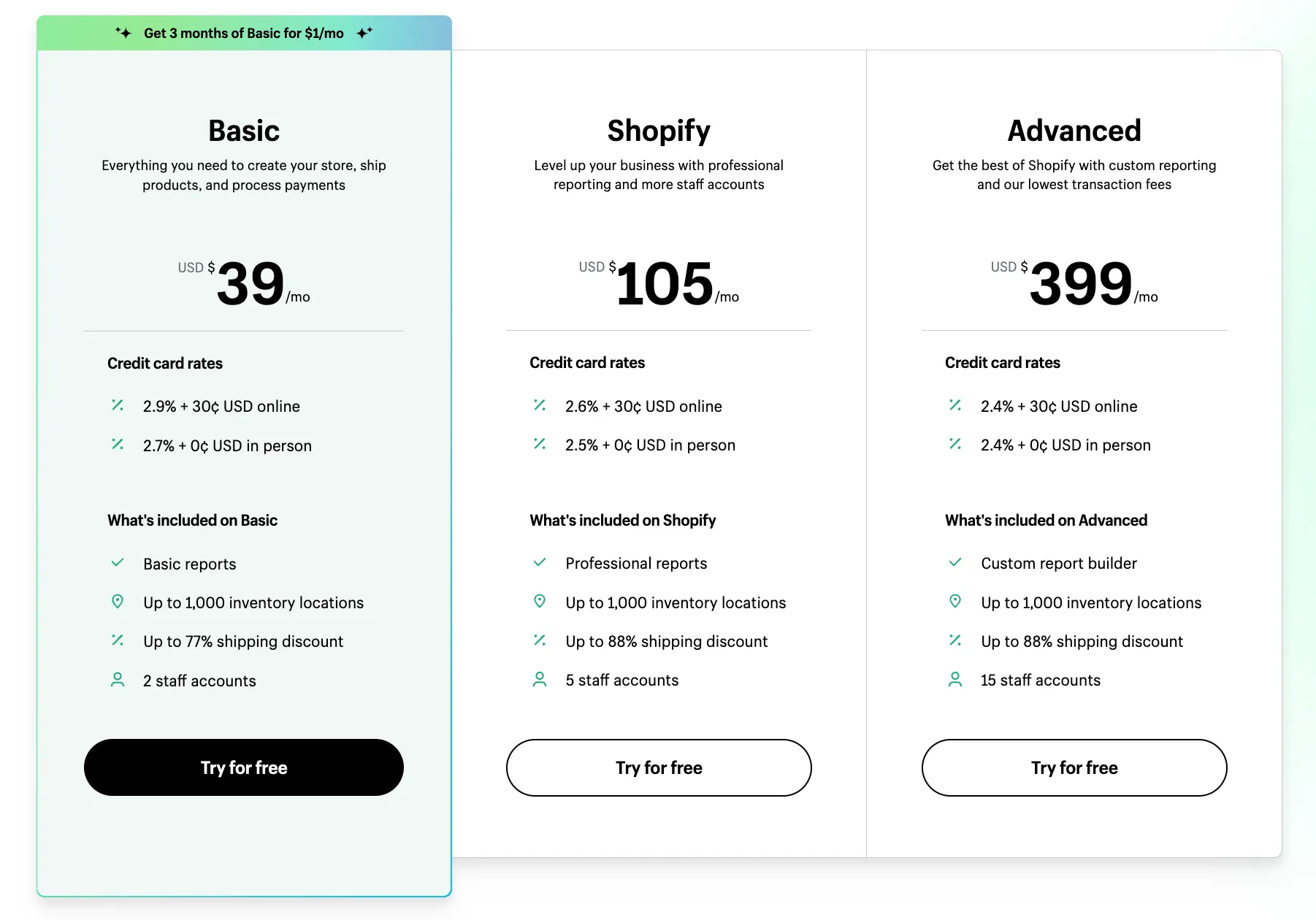
Basic Shopify ($39/month)
This plan is the go-to choice for many newbie sellers, as you can build an online store with no coding required. Basic Shopify costs $29 per month with a yearly subscription and comes with profitable selling functions such as:
- Adding unlimited products to your store.
- Getting 24/7 phone, email, and live chat support.
- Sending automatic abandoned cart emails.
Shopify ($105/month)
When it comes to scaling up your business, the Shopify plan is a perfect choice. At $105/month, you can utilize all the great features of the previous plan and unlock many more seller benefits to grow your revenue:
- Lower third-party transaction fees by 50% per transaction compared to the Shopify Basic plan.
- More insightful reports on data regarding orders, sales, profits, etc.
- More staff accounts (5 in total) to make internal operations more secure for larger businesses.
Advanced Shopify ($399/month)
This plan is made for enterprise-level eCommerce businesses that need a solution to cope with their large scale. By accessing a full set of stunning features, users can smoothly operate their stores in the international market. Along with all the benefits from Basic Shopify and Shopify plan, here are some exclusive benefits for you when using Advanced Shopify:
- Get 15 staff accounts for seamless operational management.
- Pay the lowest fees regarding shipping, credit card, and third-party transaction.
- Unlock custom reports while enjoying all report functions of the previous plans.
- Calculate duties and import taxes for customers at the checkout step
See how these 3 pricing plans compare using our table below:
[wptb id=48766]
#2. BigCommerce pricing
What is BigCommerce?
BigCommerce is also a prominent hosted eCommerce platform that provides everything you need to create an online store. With just a few sign-up steps, merchants can start adding products to their eCommerce store and monetizing it right away.
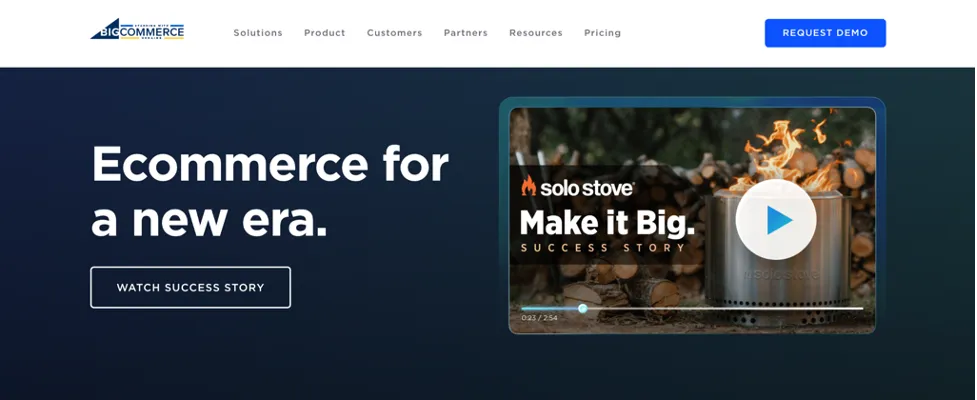
For store owners who want plenty of customizations within a hosted environment, choosing BigCommerce is one of the best ways to start. The platform has some of the best built-in features and powerful open APIs to let you thrive on your eCommerce journey. This means you get to add any additional functions as your business grows and freely tailor your store design to your liking.
BigCommerce pricing plans
BigCommerce currently offers a 15-day free trial. Afterward, you can choose to subscribe to these available pricing plans:
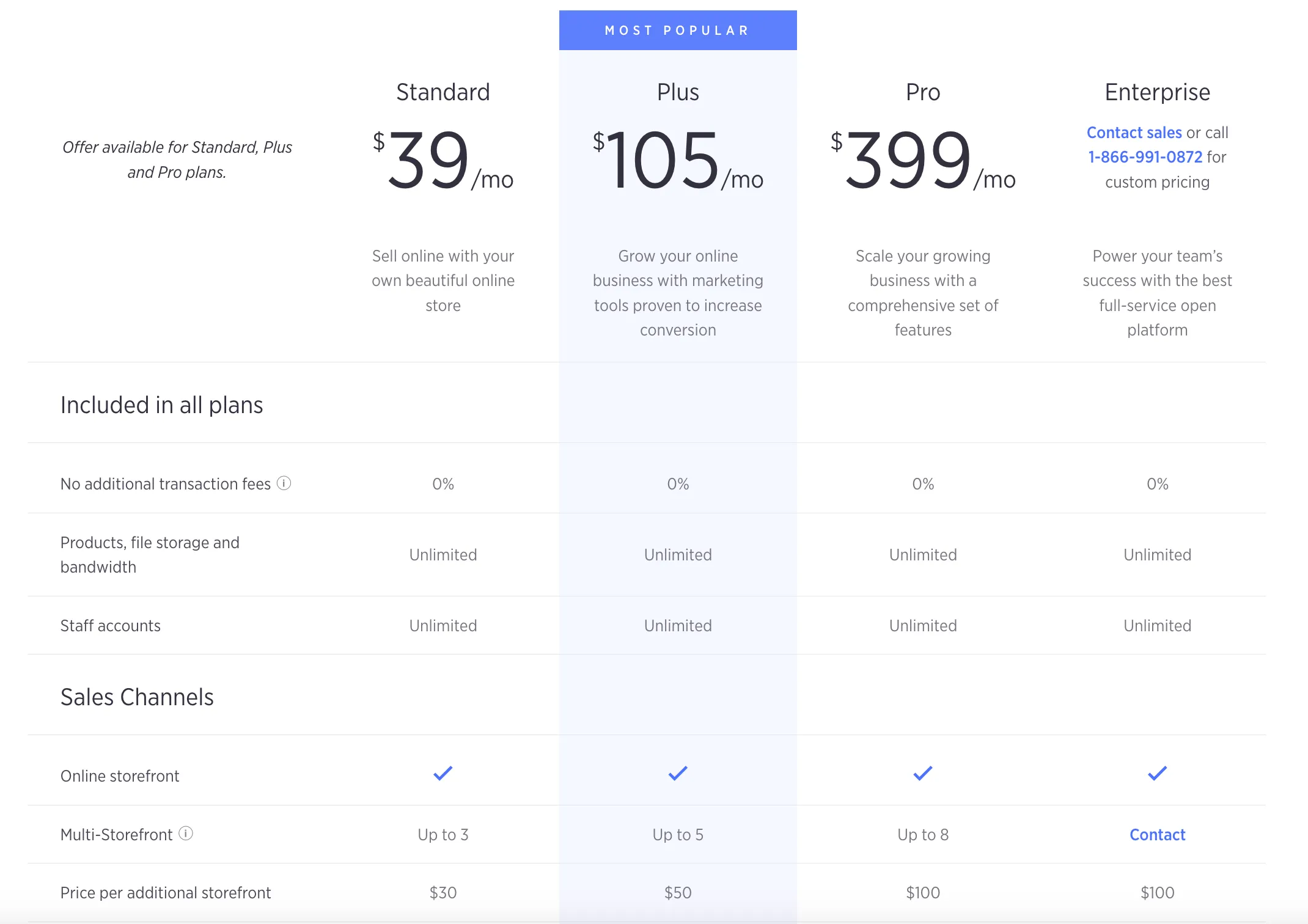
BigCommerce Standard ($39/month)
This pricing option would be a great start if you’re looking for feature-rich plans with a fair price to open a new business. The standard plan is best for small-sized stores with annual sales below $50k.
BigCommerce Standard comes with a generous number of features such as unlimited products, bandwidth, file storage, and staff accounts with zero transaction fee. On top of that, you can sell across multi-channels including Amazon, eBay or Facebook and Instagram.
BigCommerce Plus ($105/month)
When your revenue has reached up to $180k/year, this pricing plan will be the most suitable. Merchants will have a full set of features from the standard plan plus some extra tools to boost sales and increase conversion rate, including:
- Abandoned cart saver: Allows you to send automated emails to customers who have added an item to their cart, but left before payment is completed.
- Stored credit cards: Simplify the check-out process for your shoppers by allowing them to store their credit card information.
- Customer groups and segmentation: Segment buyers into specific groups in order to offer them a better and more personalized customer experience.
BigCommerce Pro ($399/month)
The Pro plan is made for big businesses with high sales volume, as it allows for a $450k revenue threshold. With this plan, you will have all the features included in the Standard and Plus plan, as well as some of the best functions to take your store to the next level:
- Custom SSL: Let you install an SSL purchased from a third party on your BigCommerce store.
- Product filtering: Bring more convenience for the customer when it comes to finding products on your site by allowing them to search by size, color, or brand.
Dig deeper into what Shopify and BigCommerce can offer!
Shopify Basic vs BigCommerce Standard: FAQs
[sp_easyaccordion id=”49138″]
✧ You may also be interested in reading:
Final Thoughts
Both BigCommerce and Shopify are among the best eCommerce platforms on the market. We hope that with the detailed information above, you can make a suitable decision when choosing between Shopify Basic vs BigCommerce Standard.
If you are planning to migrate to BigCommerce, migrate to Shopify, or between these two platforms, LitExtension team is ready to help! As the #1 shopping cart migration solution, LitExtension can transfer all your data, including products, customers, and orders, quickly and securely.
Still have questions about BigCommerce and Shopify, please don’t hesitate to contact us to get the utmost assistance. Let’s visit LitExtension Blog or join our active Facebook Community to get support from many other eCommerce store owners today!